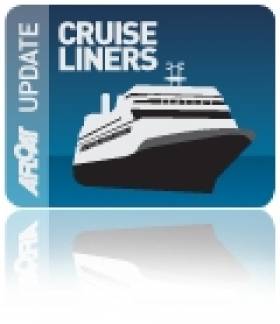Displaying items by tag: Holland America Line's Prinsendam
Three’s A Crowd as Liners Line-Up in Dublin
#TREESOME CRUISECALLS – This morning three cruiseships arrived into Dublin Bay and all within less than an hour. Currently the trio are berthed closely together in the centre of Dublin port, which this year expects to see around 90 such vessels visiting this season, writes Jehan Ashmore.
First to arrive was Holland America Line's Prinsendam (1988/37,983grt) from Liverpool, followed by Swan Hellenic's Minerva (1996/12,449grt) from Portsmouth and lastly Peter Deilmann's Deutschland (1998/22,496grt) from Douglas.
In 2011 around 200 large cruise vessels visited Irish shores carrying more than 308,000 passengers and crew. The cruise sector in fact has doubled in terms of visitors, in just over 7 years when 142 cruise ships called in 2004 bringing more than 146,000 passengers and crew.
Large ports such as Dublin, Cork and Belfast handled over 85% of the total cruiseship visitor numbers in 2011. Of these ports only Dublin saw an increase, leaving the others remaining relatively unchanged. However, as previously reported on Afloat.ie, the opening earlier this year of Titanic Belfast is attracting more cruise calls to Belfast.
























































